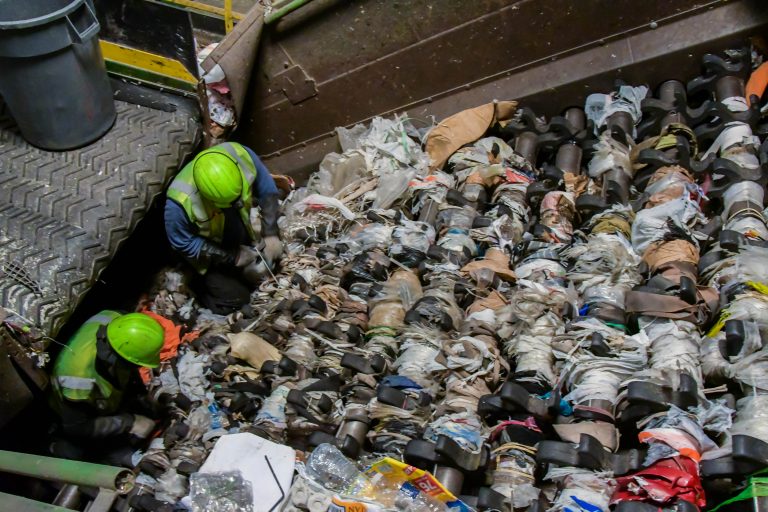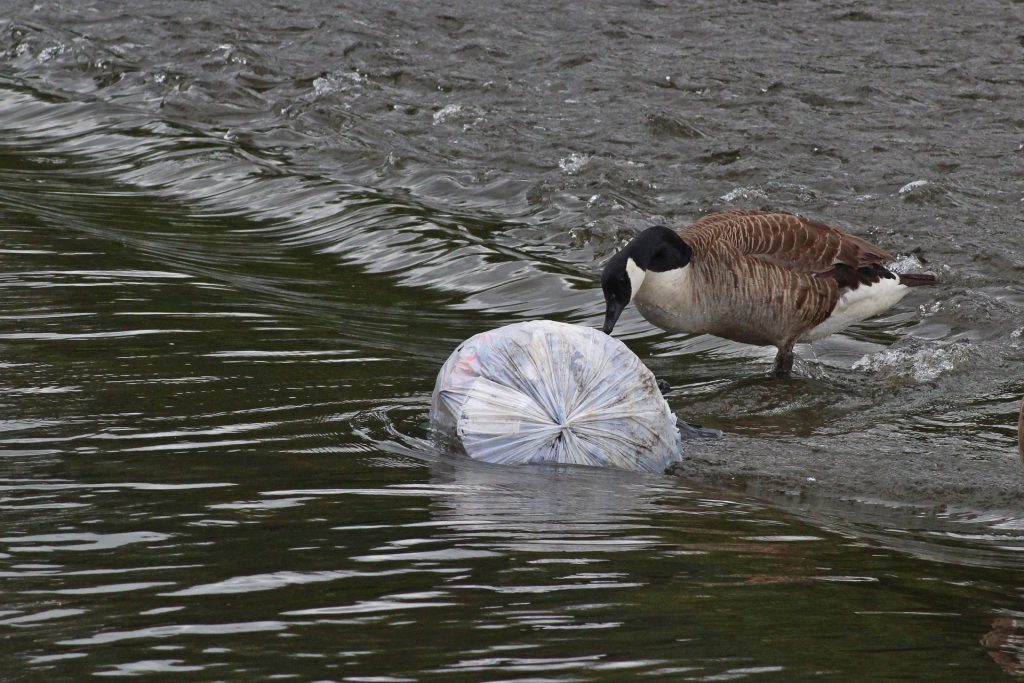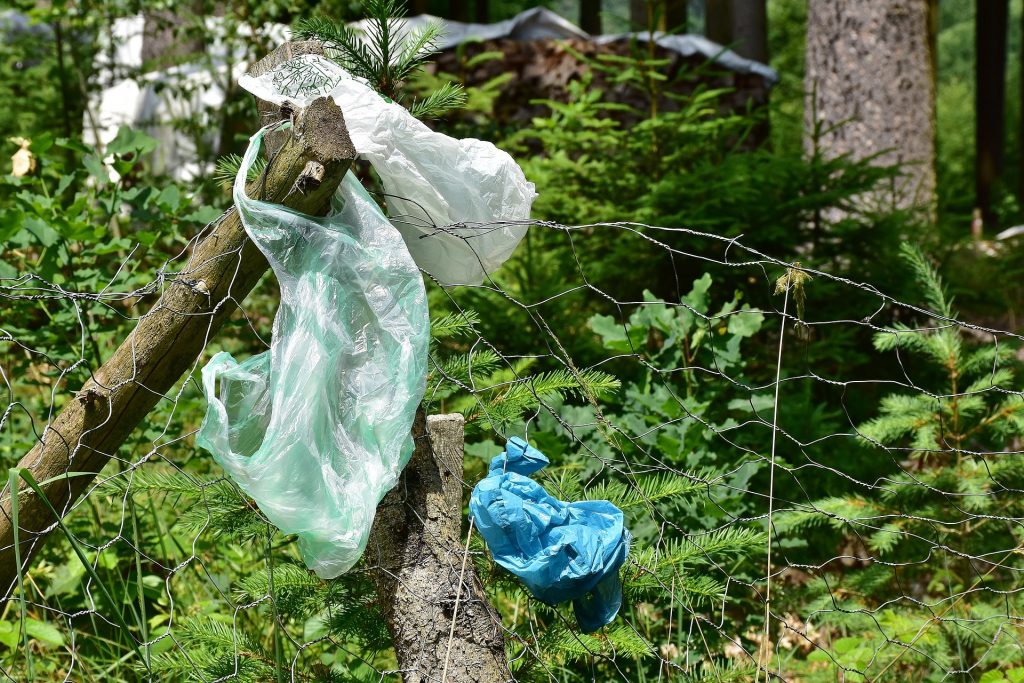Plastic Bag Recycling Program!
The general public, for the most part, does not realize that almost all communities in the U.S. do not accept plastic bags in curbside recycling because the bags get tangled up in the equipment, causing problems for recyclers. Most single-use plastic bags end up in landfills, the ocean, or littering our environment, impacting birds, marine life, and humans.
According to Waste Management, Americans use 100 billion plastic bags per year, which means the average family takes home 1,500 plastic bags per year. Only 1% of plastic bags are returned to drop-off locations for recycling while the rest end up in landfills. It takes more than 500 (or more) years for a plastic bag to degrade. Unfortunately, the bags do not break down completely but instead become micro-plastics that absorb toxins and continue to pollute the environment.
Per Vox, in April, a pregnant sperm whale washed up on a beach in Sardinia with nearly 50 pounds worth of plastic bags, containers, and tubing in her stomach. Biologists in Florida last month euthanized a baby rough-toothed dolphin with two plastic bags and a shredded balloon in its stomach.
Pay It Forward wants to be a part of the solution and make a difference by reducing the number of plastic bags that pollute our environment.
Education
We want to work with municipalities across the country to produce educational materials, such as direct mail, flyers, stickers, and more, to make people aware of the plastic bag problem and how they can be make a difference.
- Awareness that plastic bags do not go in recylcing containers
- Awareness of the problems that plastic bags create for recyling processing
 when they are disposed of in recycling containers
when they are disposed of in recycling containers - Awareness of the problems when plastic bags go in regular trash bins and end up in landfills
- Awareness that most grocery stores and retailers offer plastic bag recycling bins
- Awareness that more and more municipalities are also creating WRAP programs for other types of plastic packaging
- Awareness of how easy it is to switch from plastic to reusable bags
Sometimes doing the right thing takes extra time and effort, like storing your plastic bags until your next trip to the grocery store or remembering to bring your reusable bags when you are shopping but it is our hope that, through awareness, some people will see the value in taking these extra steps.
Pay It Forward is also looking at ways to make it even easier for consumers to recycle their plastic bags as well as finding ways to use plastic bags that are environmentally friendly and a benefit to common good.

Plastic Bag Canisters
To develop plastic bag canisters and distribute them to business and consumers for at-work and/or at-home use. Possibly, businesses could use them as promotional items with advertisement on the canister.
The canisters would be made of .4 mm plastic film and arrive flat. When assembled, by folding the flaps, the canister is 15″ x 5″ x 5″, can be stored below the kitchen sink, in the pantry or garage, or any other convenient location, and will hold approximately 50 bags.
Once canisters are full they can be emptied at a nearby grocery or retail location thereby helping the environment in an easy and convenient way!
Gasification Plant
Plastic bags would also be an abundant and low value feedstock for a gasification plant that could potentially produce fuel, electricity, or other needed products through an environmentally clean and sustainable process.
Read more about this program under the Gasification Plant heading.




